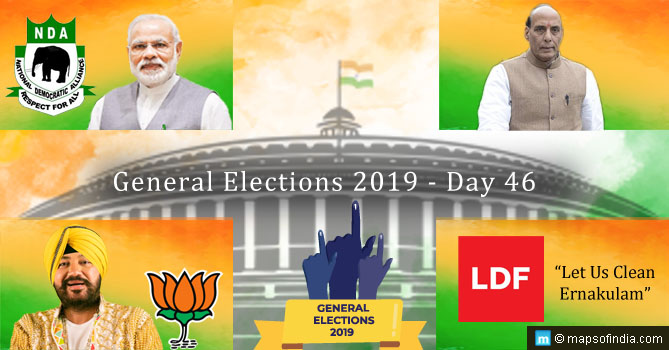The term ‘democracy’ has a Greek connection as the words “Demos” and “Kratos” refer to people and power, respectively. It primarily means power with citizens of a respective country. It details a system of government where the citizens are free to elect their representatives and have political freedom and equality. They can impact critical decisions, either directly or taking the election process into account.
According to Abraham Lincoln, Democracy is “Of the people, by the people, for the people”. It sets high standards with its two vital principles, namely Individual autonomy and Equality. In Individual autonomy, there is an idea that no one should conform to rules which others have forced. Instead, people should be able to live as per their approach. At the same time, equality is the idea that everyone should have the same opportunity to contribute to the decision-making process that affects every person in society.
When democracy prevails in a country, it acts as a safeguard to the people’s best interests, irrespective of their gender, race, sexuality, religion, or any political opinion. Therefore, it should not be reduced to elections and exist without any threat to a person.
Various systems of the Government
- Oligarchy: Democracies provide power to numerous people, whereas oligarchies provide power to a few. It’s a system where a small number of people have power backed by their social status, wealth, education or business interests. Power is often sent from one cluster to the next, with no majority of the population voting. Examples: Iran, Russia and Saudi Arabia.
- Autocracy: In this system, a single person holds the absolute power to rule over the country. This ‘autocrat’ is mainly above the laws that are subjected to everyone. For instance, the North Korean dictatorship is the longest-running autocratic regime after World War II.
- Constitutional monarchy: It is a type of government in which an individual (a monarch who is a king or queen) has assented to share power with a constitutionally arranged form of government. Monarchs attain their position through hereditary succession, implying that they are born into it through their family. Examples: Britain, Spain and Belgium
“No one is born a good citizen; no nation is born a democracy. Rather, both are processes that continue to evolve over a lifetime. Young people must be included from birth,” said former Secretary-General of UN Kofi Annan.
Issues associated with Democracy
- Exercising the right to vote: There are countries such as Australia where voting is a compulsion by law for some elections. However, this does not apply to many democratic countries. Some people don’t perform their right to vote despite having a voter id card or being eligible. Eventually, one can not contribute to selecting the leader of the country. For instance, In the 2016 US presidential election, only 55% of voting-age citizens exercised their vote.
- Eligibility concerns: There are democratic countries where certain laws desist people from voting; for instance, the 1983 Representation of the People Act in the UK does not permit people who have been convicted of crimes in the past from voting while they are in prison.
- Uninformed voices: Usually, citizens are requested to vote on critical issues or make decisions for them, but many don’t know the concerned subject to comprehend its consequences. Citizens know that politicians are involved in propagating misinformation during campaigns, which only makes it difficult to keep oneself well-informed of issues. For instance, following the 2016 Brexit referendum, which witnessed the majority of the British public vote to leave the EU, GoogleTrends observed a massive increase in search requests on what will take place if Britain were to leave.
- Long Decision process: The process of amending laws and making decisions about the country must endure several steps of voting before its execution and implying that putting into effect what people want often takes a considerable period. For example, the United States has a thorough process in which a bill (first draft of a law before it is passed) must be endorsed by numerous stages of the government, namely Congress members, government committees, public officials, and the executive personnel office.
- Corruption: Once a leader is elected to power, there are no certainties that they won’t use that power for their benefit. They may have vowed to people to try and get voted in, but they may not follow through on those promises post they take charge of their position when elected.





